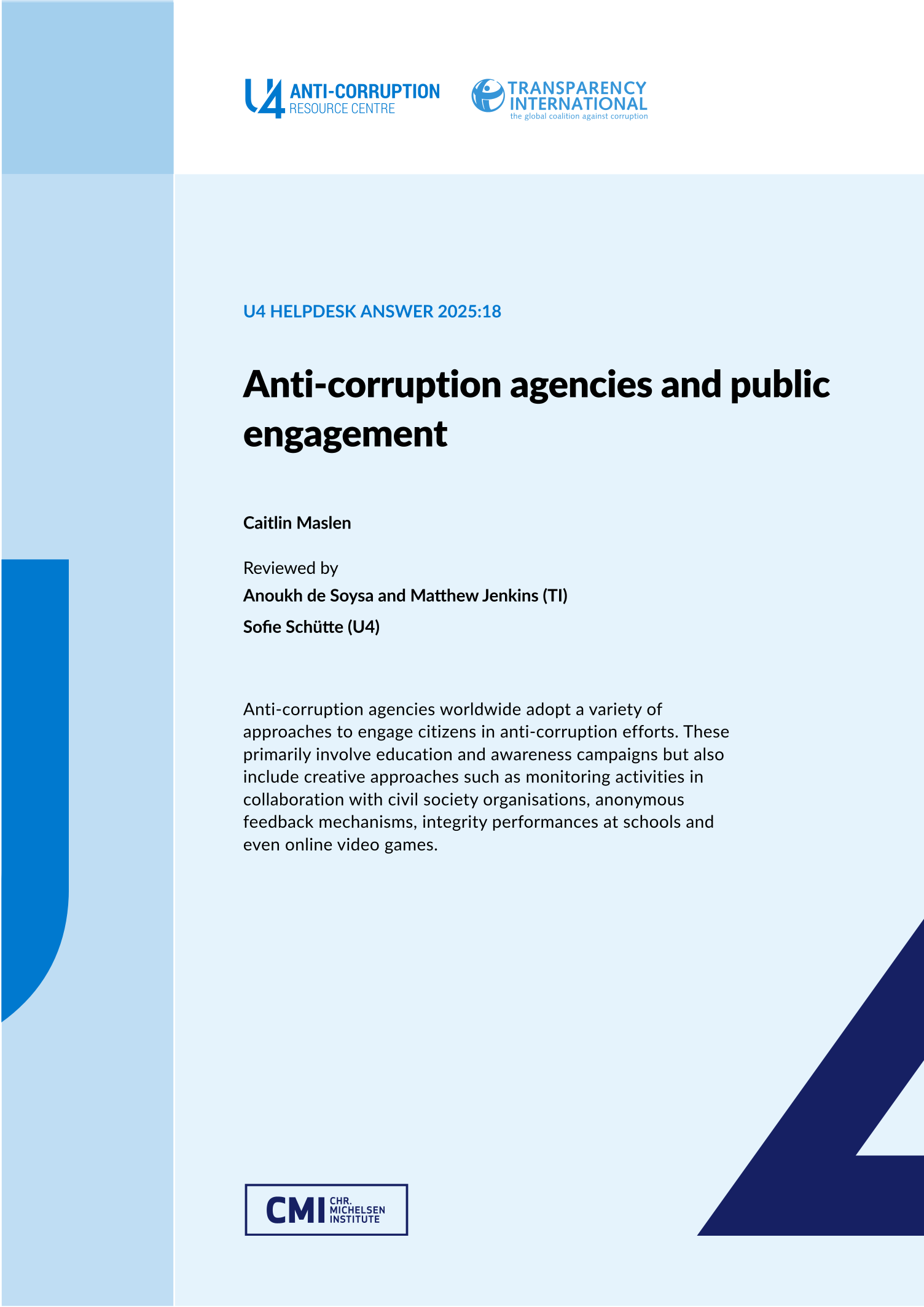Main points
- Anti-corruption agencies can engage with citizens in relation to each of their main functions, namely, corruption prevention, education and awareness raising, investigation and prosecution. A strong relationship with the public helps to maintain public trust in the agency. And a well-informed public that has confidence in state anti-corruption bodies is more likely to oppose and report instances of corruption.
- Anti-corruption agencies worldwide are engaging with the public, with evidence suggesting that this is increasing. Notable examples include clear service charters, supporting access to information, community scorecards, working with schools and universities, allowing citizens to input into national anti-corruption legislation, providing a variety of safe reporting channels to report corruption, publishing the outcomes of investigations, producing integrity video games for the youth, and working with local community leaders.
- There are several suggestions put forward in the literature on how project implementers could make community engagement initiatives sustainable and effective, taken largely from research in the development sector. This includes sustainable funding, working with youth to instil integrity values from a young age, training influential community representatives who can influence others, and supporting civil society initiatives in local communities.
- While the evidence suggests that public engagement is important to the success of anti-corruption agencies’ work, the literature notes that there may be some unintended consequences that should be considered. For example, raising awareness of the impacts of corruption may result in community fatigue and, ultimately, increased acceptance of corruption. Therefore, contextual analyses should be conducted before any anti-corruption community interventions to mitigate unintended consequences.


